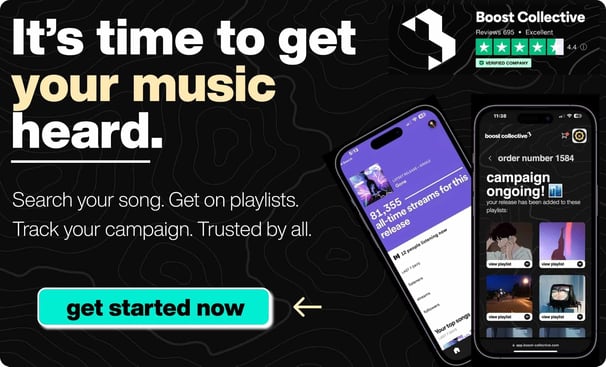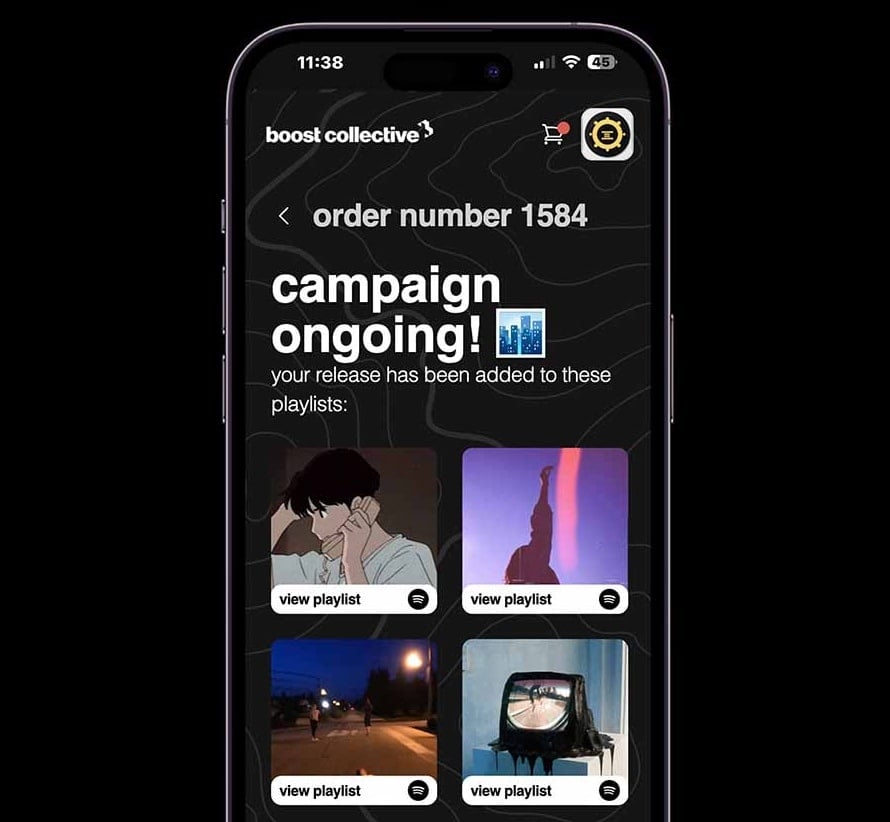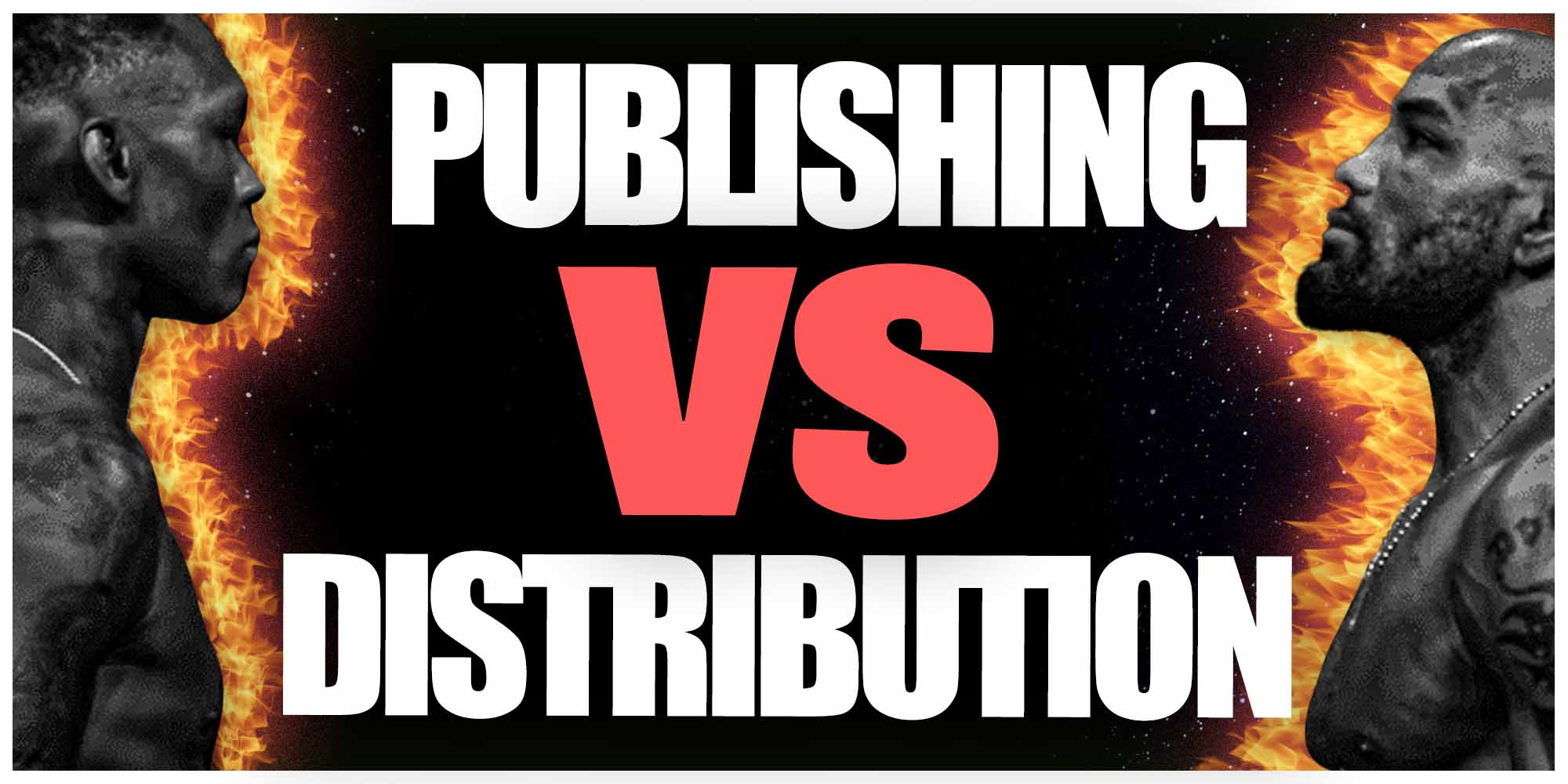
What's the difference between music distribution and music publishing?
Before we talk about licensing music, we need to talk about who owns the music rights.
Read this FULL blog so you can be an employer artist. Knowledge is power.
Copyrights for a song are different for music distribution and music publishing. This is why they are two separate processes.
In music distribution: whoever pays for the sessions, usually the record label or the producer, owns the recordings.
The differences between music publishing and music distribution:
Prince:
Services:
Type of Copyright:
On the flip side, the actual sound composition copyright is still up for grabs.
The composition is mostly the work of a composer (or several songwriters who worked together on it) and is then considered publishing.
Want to get your music on active & relevant playlists that actually get results?
Get your music heard now 👇
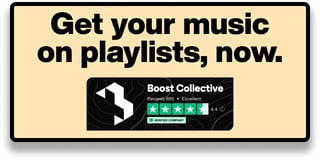
Boost is the platform artists go to when they’re ready to graduate from basic distributors anyone can access. Here’s what they have to offer.
- Promotion On Autopilot - Every release you distribute is automatically pitched
- Free Asset Funding - From cover art to video visuals, artists get it all when they distribute through Boost Collective
- Future Growth Opportunities - As you grow, more doors unlock with Boost. From editorial opportunities to advances, distribution deals and more. All whilst you stay independent!
We'll send you a login to manage your song and future catalog after we've set everything up for your release!
Two kinds of music copyrights: composition vs. master
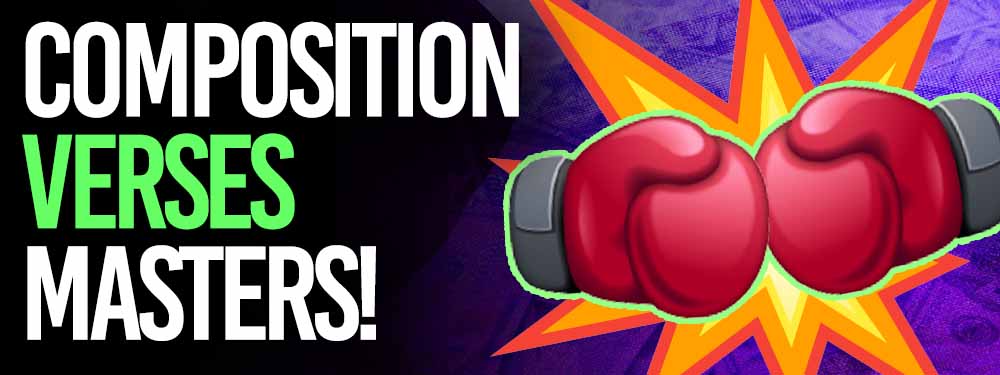
In the music business, everyone should know the difference between composing and mastering.
Copyright for music is split into two parts: the master recording and the composition that goes with it.
There are two sets of rules about who owns the rights to the music.
In the simplest terms, these two sets of copyright could be about the same song, but depends on the way the song is used.
Watch the video below for more clarity.
Music publishing Explained?
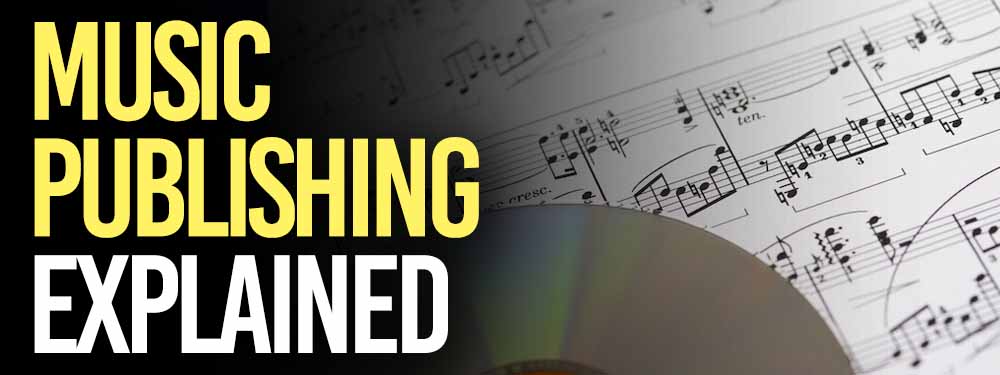
Promoting and selling musical compositions is what publishing is all about.
Publishers are the part of the music business that has been around the longest.
So what exactly is music publishing?
Music publishing gives songwriters the royalties from their songs and makes it possible for the composition to be played and copied.
This standard of music publishing was created back when sheet music was popular!
It was around long after recording, and sheet music publishing was pretty much the only way the music business worked.
These companies at different from music distributors, in the fact that music distributors don't account for 100% of your copyrights.
The role of music publishers
Music publishers are people who have licenses for the copyrighted use of a particular music work.
Publishers sign contracts with writers to control composition, maximize cash flow, and register copyrights with CMOs.
Publishers were in charge of putting songs on paper, getting them into stores, and paying the authors who had made the songs.
music publishers submit your music to reputable publishing administration services.
Nowadays, your music publisher takes care of remixes, covers, and composition copyrights.
How Do I Switch My Music Distributor?
Music Publishing Deal Explained
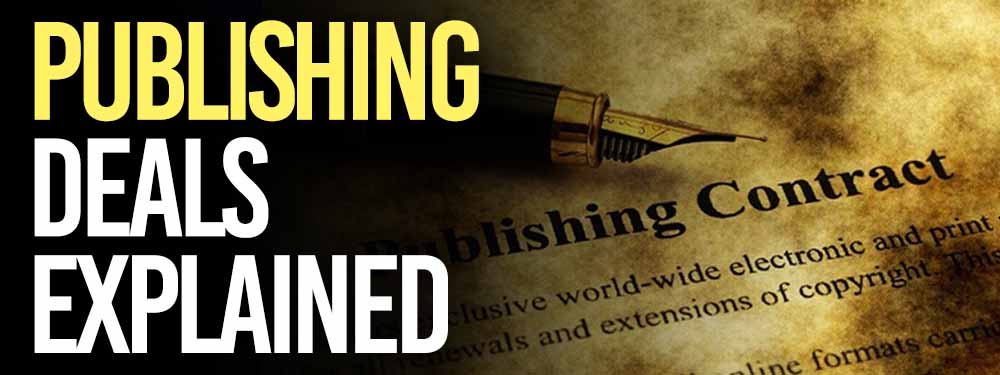
What exactly is a music publishing deal?
Music publishing deals are deals that give publishers permission to use your musical content. This can vary through sync and licensing deals.
For your participation in this transaction, the publishers (and copyright owners) will pay you a fee.
Some services offer distribution deals as well as publishing copyrights.
This lets songwriters take control of their music publishing services.
6 benefits of a music publishing deal are:
-
More physical sales
-
Sync licensing opportunities
-
Songs written off your music can be paid for
-
Royalties generated beyond digital platforms
-
Make more as an independent artist
-
Collecting royalties from radio stations
At the end of the day, music publishing registration is worth the upfront fee you'll pay.
Performance and mechanical music copyright are the backbone of the music industry.
But, it gets slightly tricky... Because each piece of music has a multiples share of ownership.
Even if only one person wrote a song, it is still split into two parts: the writer's share and the publisher's share.
Sometimes, the publisher can be the administrator, or in other cases the songwriters assume both roles.
(Note: If you have multiple songwriters, then collecting mechanical & performance royalties becomes even more complex.)

The 3 types of music publishing royalties you need to know about
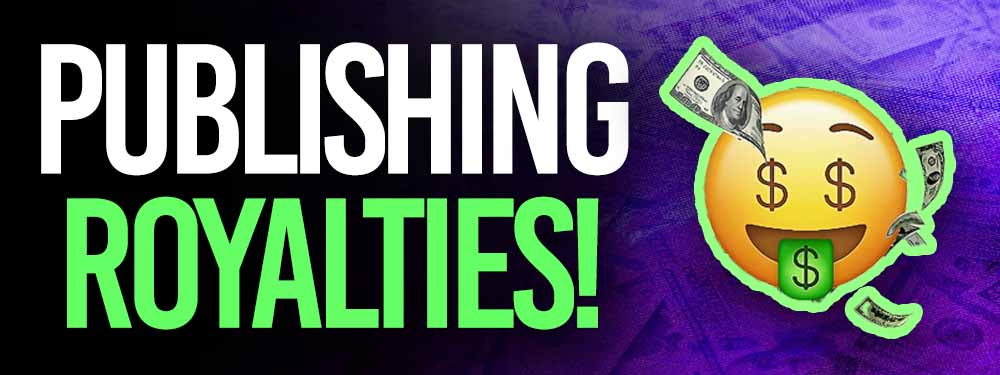
Copyright law sets the rules for how royalties on books are calculated, and the rules for the publishing business can be different in different countries.
There are 3 kinds of music publishing royalties collected:
-
Sync licensing
-
Performance royalties
-
Print music royalties
Revenue generated will come from these publishing agreements.
We have mostly paid attention to the basic MR aspect, but the others are just as important!
Even though royalty rates and ways of collecting money may be different in your country, the process of collecting royalties from music publishing services is the same.
Don't leave your music royalties generated on the table.
30 Best Distrokid Alternatives!
How are these royalties collected and paid?
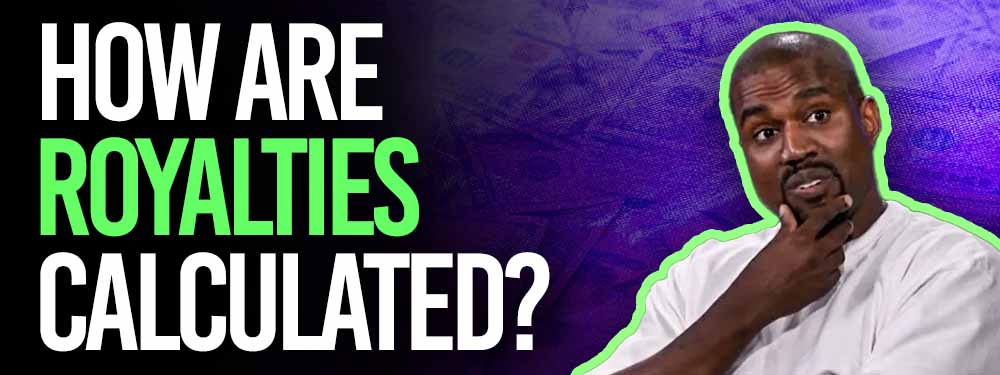
So who collects royalties generated in the music industry?
In every country, there are groups called "Performance Rights Organisations" that collect royalties, figure out what owed parties have, and pay for it.
A book publishing company can help you find good publishers and collect books from them.
Collective Management Organizations (APRA, PRS, and GEMA) and mechanical agencies (The Harry Fox Agency, Music Reports, The MLC ) take part in royalty collection.
Music copyright firms make it a big deal to collect the royalties properly.
Songwriters pay an upfront fee to a publishing admin for their services, but they don't give up any of their rights to the song in exchange.
The basic roles of a performing rights organization (PRO)
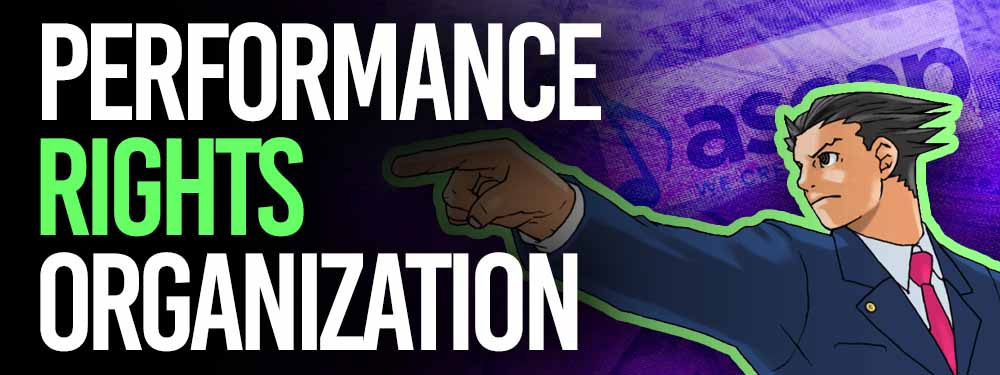
As mentioned above, there is a special group called PRO is in charge of
keeping an eye on how often songs are played on the radio and at live events.
Here are some other ways that a PRO collects royalties generated:
-
Pay royalties to songwriters who appear on Radio
-
Charge restaurants fees to include their music in their catalogs
These costs will change based on where the artists are from.
The performance-right organization takes all the royalties generated and puts it into a fund.
After, the money from these funds is used to pay songwriters and publishers.
Tip: registering your setlist with your PRO is a good idea if you play shows in the city!
Music Distribution Explained
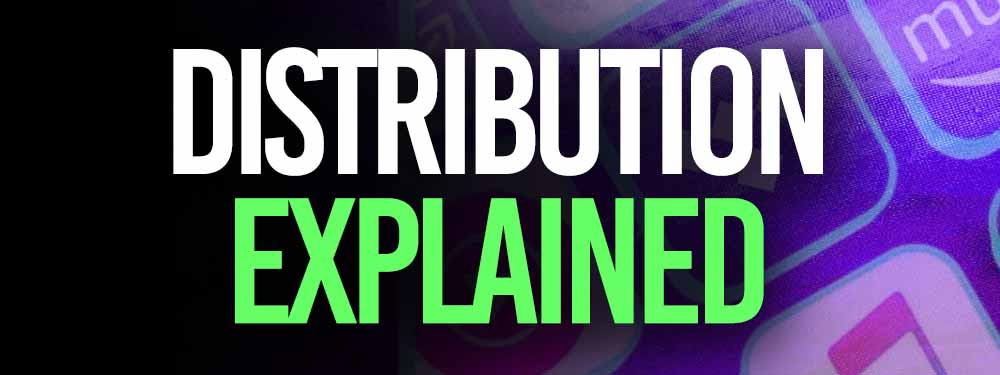
What exactly is music distribution?
Music distribution is defined as a company agreeing to sell the artist's masters to consumers. This can be either digitally, or in physical stores.
The job of the distributor is to make sure that your music is made, digitally coded, and sold in stores and online digital service providers (DPS) all over the country or the world.
Rather than using a music publishing administration, you use a digital music distributor.
This can suck though, since artists have to pay for their own recordings, marketing, public relations, and other ways to get their name out there.
The best music distributor!
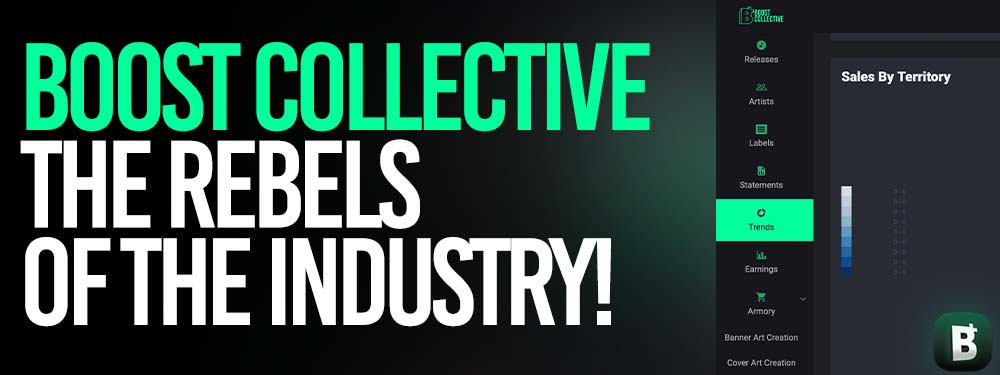
Which music distribution company is best for you?
A good music distribution company does these things:
-
Connect to a performing rights organization
-
Good at collecting royalties
-
Releases music to all streaming platforms
This is why I recommend that you use Boost Collective.
Not only do they get your music on 150+ stores, there are bonus perks!
Here are the benefits we offer:
-
100% Free Music Promotion
-
100% Free Cover Art
Nobody cares more about their artists than Boost Collective.
This is why you maintain ALL of your masters!
We believe in honest and cooperative commerce with the artists we foster, not exploitation.
Do you believe your music deserves recognition?
The upside to music distribution deals
Traditional music distributors are mostly record companies that handle both physical and digital distribution.
However, many artist-direct music distributors offer digital content to digital consumers through Spotify, Apple Music, iTunes, Amazon Music, and Tidal.
Distribution deals are great because it doesn't the artist doesn't give away their master or publishing rights. They pay a small fee (or nothing at all) to get music to consumers.
Distributing companies get paid by charging flat rates like CD Baby Pro publishing.
It varies a lot between distributors.
The royalties collected by music distribution are called "mechanical royalties".
Here's the different kinds of record deals!

What are mechanical royalties?
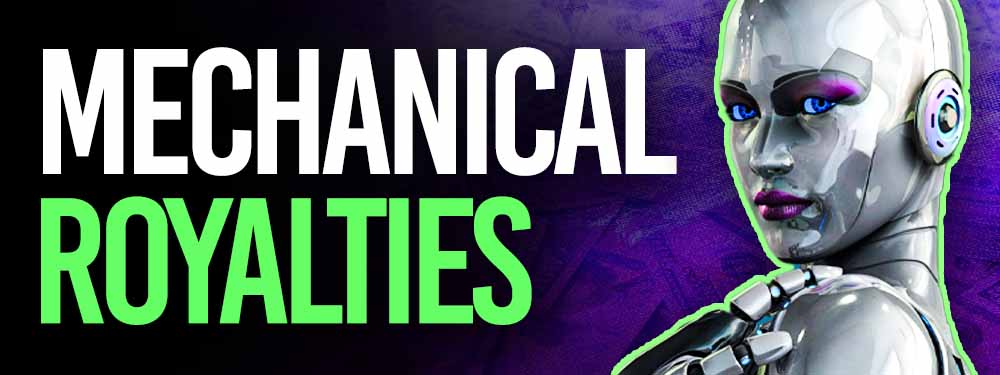
When people could only buy music on CDs or vinyl records, each copy of a song produced a mechanical royalty.
They are getting the song through a direct (mechanical) medium.
When "mechanical" copies of your works are made, you get mechanical royalties.
This seems trivial, but it's a huge difference in music industry copyright.
Since digital media came along, mechanical royalties have grown to include digital sales and revenue streams.
The streaming platform will pay you a mechanical fee every time somebody downloads/streams a song from iTunes or stream it through an app like Apple Music or Spotify.
Music distributors (such as CD Baby Pro Publishing or Boost Collective) make sure that all international royalties go to the right performing artist and record labels.
Why Mechanical royalties are linked to your master recording
Yes, the distribution collects the revenue from a Master Recording.
Generally, if your composition was covered by a different artist then you will get mechanical royalty.
A music publishing administration deals with derivative forms of your music (remixes, covers) so it's not there are no "master" royalties generated.
Unless the cover artist adds your name in the song's metadata when releasing - you won't get royalties.
This is why a music publishing administration is so key.
They make sure that both your master recording and any derivative work can collect mechanical royalties.
This is why publishing administration companies are so essential!
They make sure that revenue generated (either from interactive streaming) or self-publish ticket sales are counted at the correct mechanical rate.
4 Most Popular Music Publishing Administrators
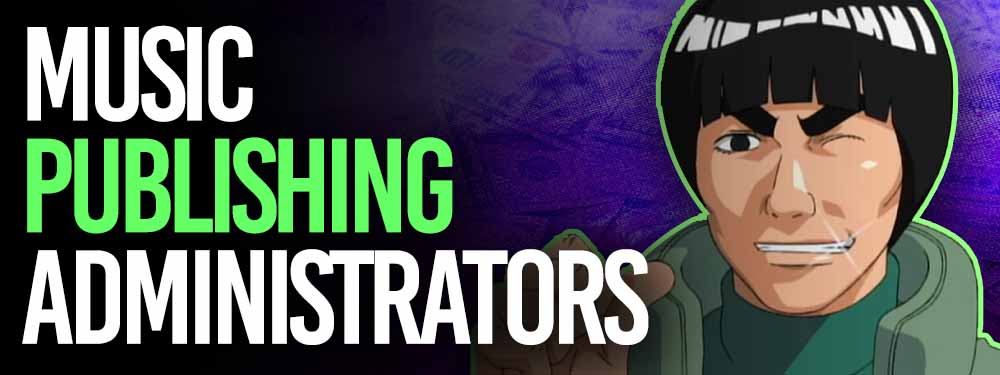
The music publishing industry has a huge database.
This is how a music publishing administration can track your sound recording and get the right money for independent artists.
Now, let's look at three services you should use:
-
TuneCore publishing admin
-
CD Baby Pro publishing admin
-
Sentric Music Publishers
Music Distribution For Record Labels!
Distribution services that offer distribution for interactive streams can work with these firms.
By registering your sound recording with these publishing administration companies, you are protecting your music as a recording artist.
A music publisher sends your music to a publishing administration.
The companies get performance royalties and mechanical royalties from more than 150 countries!
Songtrust is a publishing company for songwriters that works all over the world.
It has 3 million copyrights and more than 350,000 registrations.
Every time a DSP (such as Apple Music) plays a song, then the publishing administrator collects mechanical royalties.
How do DSPs know who the songwriters are?
When you send a copy to a distributor, you must be able to give them the information they need.
When recording artists release music, their music distributors generate custom ISRCs with an authorized PRO. This allows for accurate royalties collection.
Make sure that the metadata on your files is correct and matches the metadata on your other files.
If a recording artist puts in the wrong data, it can be difficult for a publishing administrator to track and collect mechanical royalties.
Gathering royalties as independent artists does;t have to be hard... Just input the right info.
when done right, music publishing companies and the music distributor will send you the money ASAP.
Even if your song is played in a TV show, record labels, and Indie artists can find the song's composition copyright.
Bonus: Synch Licensing with your Local PRO
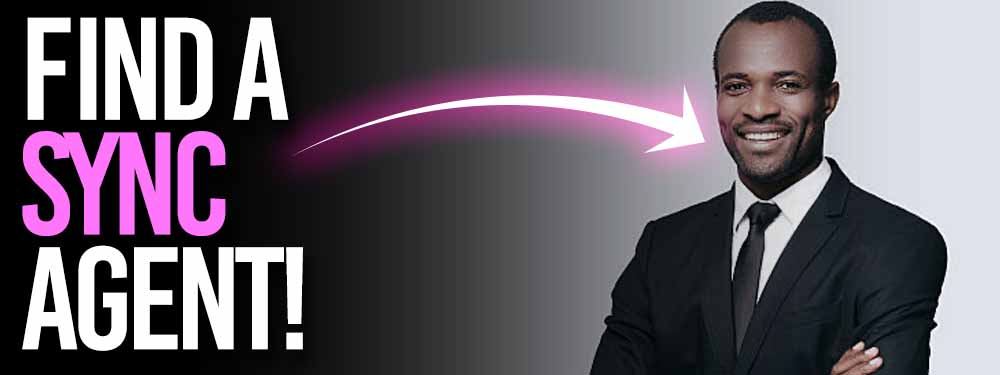
In addition, publishers can look for ways to work with you to develop your creative skills.
To work with a music publisher, you don't have to be a recording artist. You can just be a songwriter. This means sync licensing is here for you too.
You can pitch the song for sync opportunities and set up camps for songwriting and collaboration.
You won't get the publisher's share, but you'll still earn money through the songwriter's share.
Streaming services and mechanical agencies favor recording artists...
But songwriters can still earn money by offering services to make a finished product shine.
Get your music on playlists now.
It’s time you get your exposure and listeners up - playlisting by Boost Collective has been trusted by 50,000+ artists worldwide.
It’s easy: Search your song, get on playlists, and track your campaign.
What’re you waiting for? Tap in - and get added to playlists in 24 hours.
Join Boost Collective for free here.
